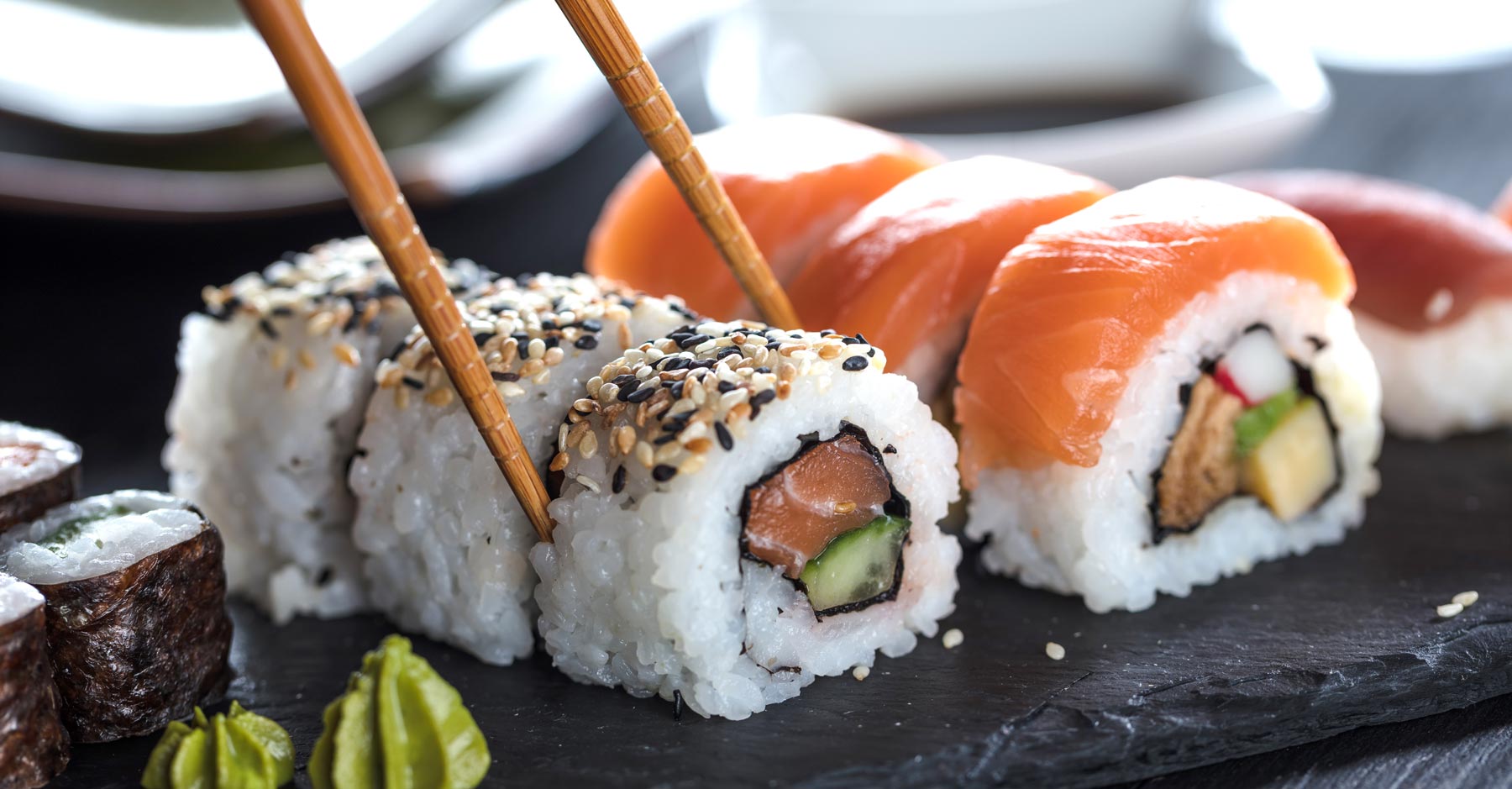
8 foods every pregnant woman should avoid
Good nutrition is vital for taking care of your body and your unborn baby. We know that always choosing nutrient-dense food can be difficult, especially when those uncontrollable pregnancy cravings hit (ice cream counts as protein, right?). No matter where your taste buds take you, remember to always avoid these eight foods when you’re pregnant.
undercooked, raw, and high-mercury fish

Undercooked or raw fish can have bacteria or parasites. Most people will only ever eat raw seafood at sushi restaurants, and while the safety regulations for sushi-grade fish are strict, doctors still recommend avoiding it. Even the most pristine raw fish can grow bacteria when mishandled. Looking to play it safe by ordering baked or grilled seafood? Keep in mind that undercooked fish can also pose concern, so it’s best to order it on the well done side.
High-mercury fish can also put your baby at risk. Adults can generally tolerate small amounts with no ill effect. However, babies in the womb can’t. If you regularly eat such fish, the chemical could negatively affect your little one’s neurological development. Instead of chowing down on mercury-laden seafood like tuna, grouper, or swordfish, switch to safer options like salmon, catfish, and sardines. Salmon is a wonderful source of omega-3 fatty acids, which are important for your baby’s brain and retina.
undercooked, raw, and processed meat

As with seafood, undercooked and raw meats are unsafe for you and your baby. Only cooking fully can remove the risk, but that doesn't mean you have to char your steak to a cardboard texture. For cuts of beef, pork, and lamb, cook to at least 145 degrees Fahrenheit. Cook ground meat to 160 degrees and poultry to 165 degrees. The easiest way to know it’s safe to eat? Use a food thermometer and remember to let your meat stand for at least 3 minutes after cooking.
It’s also a good idea to avoid deli meats while pregnant. Lunchmeat and beef jerky present the risk of listeria, a type of bacteria that can cause an illness called listeriosis. Most adults’ immune systems can handle listeria with little trouble, but that isn’t the case during pregnancy. Listeriosis can cause miscarriage, low birth weight, and other problems.
raw eggs

Eggs have lots of nutrients, making them a great food for pregnant women. But raw eggs can have dangerous bacteria like salmonella. When you're pregnant, your immune system will have to work extra hard to protect you and your baby. This means reactions to food poisoning are often more severe than when you're not pregnant. Skip egg preparations that leave the yolk raw, and remember not to eat cookie dough with raw eggs in it–no matter how good it looks at 10pm. If you get an uncontrollable pregnancy craving, check local grocery stores to see if they sell pasteurized versions that are safe to snack on.
unpasteurized milk and cheese
 Back in 1863, a scientist named Louis Pasteur invented pasteurization, giving the world a simple way to make many foods and drinks safer. Though there are always risks to consuming unpasteurized milk and cheese, those risks are even higher for pregnant women because these foods can develop E. coli or listeria. Check the labels or ask the restaurant if it’s pasteurized before you take a bite of that fancy cheese on the charcuterie board.
Back in 1863, a scientist named Louis Pasteur invented pasteurization, giving the world a simple way to make many foods and drinks safer. Though there are always risks to consuming unpasteurized milk and cheese, those risks are even higher for pregnant women because these foods can develop E. coli or listeria. Check the labels or ask the restaurant if it’s pasteurized before you take a bite of that fancy cheese on the charcuterie board.
caffeine

Doctors have long recommended limiting caffeine intake during pregnancy to no more than 200 mg per day. However, some experts say that you might want to skip it entirely. Caffeine can make blood vessels in the placenta and uterus constrict. Daily consumption correlates with lower birth weight and muscle tone. Though it’s hard to kick caffeine cravings, you can still get the delicious taste by sticking to decaf.
unwashed produce

People often associate food poisoning with raw meat, dairy, and eggs, but those aren’t the only ways to get it. Unwashed produce is also risky. Fruits and vegetables often pick up bacteria from the soil and environment. Most produce travels a long way before arriving at your local grocery store and many hands touch it during transport, so before you pop that unwashed grape into your mouth, think again and give it a rinse.
freshly squeezed fruit juice

Just like unwashed produce can lead to food poisoning, the same is true of freshly squeezed juice. If you really want to drink fresh, unpasteurized juice while pregnant, be sure to make it yourself. Thoroughly wash your fruits and vegetables before slicing them and making juice. Otherwise, surface bacteria could make it to the inside of the produce.
alcohol

Though mothers of yesteryear often drank during pregnancy, modern medical science advises against it. There’s no safe amount of alcohol for an unborn baby to ingest — and if you ingest it, so does your baby. Researchers have discovered that as little as one glass of wine can cause an unborn baby to stop breathing and moving for up to two hours. Though babies in the womb get oxygen through the umbilical cord, it’s still not healthy for alcohol to depress their central nervous systems. Enjoy tasty nonalcoholic drinks like sparkling water and fancy soda instead.
If you’re wondering about a food that isn’t on this list, ask your doctor. Though dietary limitations in pregnancy can feel frustrating, there are still lots of delicious foods to eat while pregnant. If your favorite food is on this list, look for tasty alternatives while remembering it’s all worth it for your beautiful baby.
